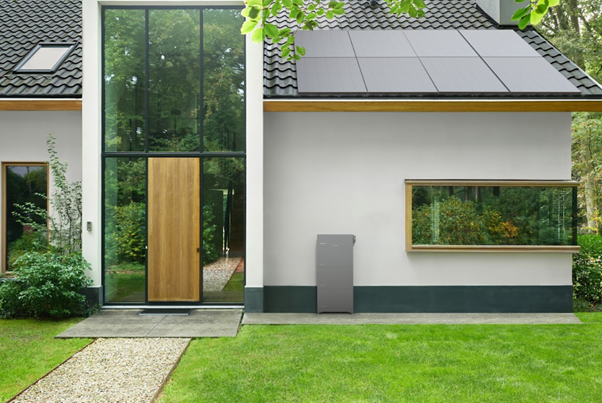How To Use Solar Panels During a Power Outage in the UK
Power cuts in the UK affect millions of homes yearly. While solar panels, also called photovoltaics, generate electricity, most grid-tied systems shut down automatically during an outage to keep the engineers working on the lines safe from electrocution. However, using the right equipment and configuration can keep your house running even during an extended outage. Whether considering an off-grid setup or adding battery storage to your existing system, understanding how to keep your photovoltaics working during outages is essential. This guide explains everything you need to know, from understanding proper inverter setup to ensuring uninterrupted electricity with a reliable battery backup.
Will Solar Panels Work During a Power Cut?
Photovoltaics can work during an outage, but only if your system is designed to do so. For instance, off-grid systems will always work during outages because you’re not tied to the grid. However, on-grid systems will require a home battery storage system, and depending on your make and model, an additional relay may also need to be installed that will send energy from your batteries to your home automatically when outages happen.
For instance, by combining the EcoFlow PowerOcean (Single-Phase) storage system with your grid-tied inverter, you can enjoy reliable backup energy during power outages — keeping your home powered when it matters most. Basic electrical system connections and regulatory requirements may apply, depending on your installation setup.
Why Don’t Solar Panels Automatically Work in a Power Cut?
Solar panels don’t automatically work during outages for safety reasons. When your panels produce energy in a grid-tied system, they send excess electricity to the grid. During an outage, you don’t want them sending energy to the grid, which could electrocute the engineers working on the lines to correct the outage. This is why on-grid solar inverters are designed to shut down when the grid goes down.
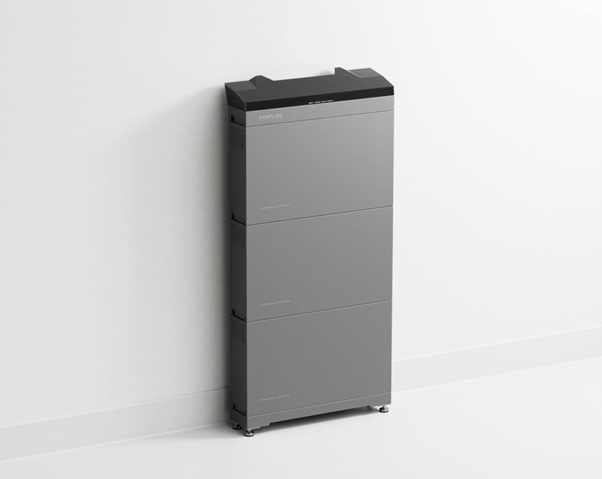
How To Ensure Solar Panels Work During a Power Outage
Most people experience outages in the UK, but their frequency varies widely with the region. For instance, 4% of people experience outages every 2-3 weeks, while 23% experience them once a year. So, being prepared for an outage is always a good idea.
One option for using photovoltaics during an outage is to have an off-grid system unaffected by grid blackouts, which provides complete energy independence. This system requires enough photovoltaics, battery storage, and an off-grid inverter correctly sized to meet your household's energy needs.
For those using grid-tied systems, minimal planning and proper installation—including battery backup—will keep your house running. One factor to consider is buying an inverter with a large enough capacity to supply all the electricity you need at one time. Sometimes, grid-tied inverters are smaller since they’re intended to supplement rather than completely supply all your electricity. This is one of the reasons you should always buy a slightly larger system than you technically need, to ensure you always have energy when required.
If you already have photovoltaics, purchase a backup battery system. However, depending on the model you buy, you may still need to install an extra relay that disconnects you from the grid when it detects an outage. You may also need a larger inverter for your battery so that it will work during an outage.
To avoid the hassles and uncertainties of buying cheaper batteries and not knowing if they will work for you, the best option with grid-tied systems is a high-quality solar battery with an emergency backup function.
Products like the EcoFlow PowerOcean (Three-Phase) are the perfect choice since they act as an emergency power supply without the need to install extra relays and without having to worry about the inverter not being powerful enough. It can handle it all, providing you with power during a blackout. To make installation even easier, you can use the EcoFlow PowerOcean DC Fit to connect your new battery to your existing photovoltaic system without changing your current inverter. Simply connect it between your panels and your existing inverter for an installation process that can’t be any easier.
Will Solar Panels Continue To Charge a Battery During a Power Cut?
Your photovoltaics will continue charging your batteries during an outage as long as they’re set up correctly to work during a power cut. Unfortunately, some low-budget batteries will automatically discharge their stored energy when the electricity goes out. This is often because the battery inverter isn’t large enough compared to the solar inverter. If this is the case, they discharge since if they allowed the incoming energy through the larger solar inverter to enter, the battery could overload and be permanently damaged.
However, suppose the battery inverter is larger than the solar inverter. In that case, energy will still flow into the battery until it’s fully charged, at which point its battery management system should stop charging to prevent damage. This is why purchasing high-quality products, like the EcoFlow PowerOcean (Single-Phase), is critical to ensuring uninterrupted electricity during cuts.
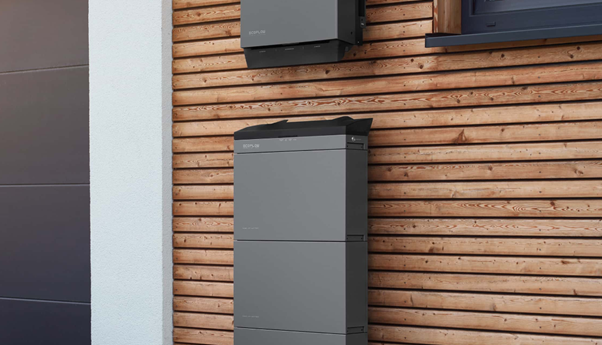
How Long Can Solar Panels Power Your Home During a Power Outage?
How long you can run your home depends entirely on how much electricity you consume, the size of your photovoltaic array, and your battery backup. During extended outages and high power consumption, your home’s suitability for solar power generation can also impact your ability to provide enough.
But to give you an idea, the average household uses about 10kWh of electricity daily. You will get about half a day if you have a 5kWh battery, while a typical 10kWh battery can run most homes for 12-24 hours without needing charging via photovoltaics. That is assuming you use a moderate amount of energy; if you use more than average, yours will not last as long. You can extend your run time by not running washing machines, dryers, or dishwashers until the electricity comes back on.
On the other hand, if you have that 10kWh battery storage system and a large enough photovoltaic array to offer fast recharging, you could last indefinitely as long as you monitor your energy consumption.
Frequently Asked Questions
How Common Are Power Cuts in the UK?
Nationwide power cuts in the UK are rare, but local outages occur regularly due to weather or damage to the lines. About 23% of people experience annual outages, while 4% experience them every 2-3 weeks.
Do Solar Panels Work When the Grid Is Off?
Yes, photovoltaics can still work when the grid is down as long as your system is designed with that functionality. You must have a battery backup system, which either functions as an emergency power supply or has a relay installed to switch to battery backup.
What kind of product or solution are you interested in?
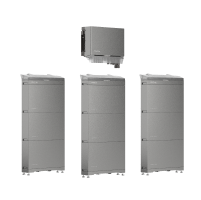
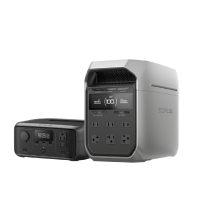
Final Thoughts
Solar panels can work during a power cut, but only with the correct setup. Off-grid systems offer complete independence from outages, while grid-tied setups require purchasing battery storage and some extra planning to ensure they continue working. While cheaper battery systems may need extra relays and larger inverters installed, high-quality equipment with a built-in emergency power supply function and a large enough inverter will work without additional equipment. Products like the EcoFlow PowerOcean (Three-Phase) provide a seamless power supply without additional relays or modifications, allowing you to keep your lights on when the grid goes down.

